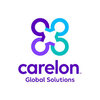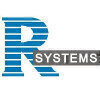Prepare for Your Medas Middle East Software Systems Interview with Real Experiences!
View interviews5 Medas Middle East Software Systems Jobs
Dot net developer
Medas Middle East Software Systems
posted 3+ weeks ago
Job Description
Application Development: Develop and maintain software applications using the .NET framework, including web applications, desktop applications, and backend services.
Programming: Write clean, efficient, and maintainable code using programming languages such as C#, Visual Basic .NET (VB.NET), or F# within the .NET ecosystem.
Web Development: Develop web applications using ASP.NET, ASP.NET Core, MVC (Model-View-Controller), Web API, HTML, CSS, JavaScript, and frontend frameworks/libraries like Angular, React, or Vue.js.
Database Integration: Integrate .NET applications with databases such as Microsoft SQL Server, MySQL, PostgreSQL, or NoSQL databases using Entity Framework, ADO.NET, or other data access technologies.
Testing and Debugging: Write unit tests, integration tests, and automated tests to ensure the quality, reliability, and performance of .NET applications. Debug and troubleshoot issues as needed.
Security Implementation: Implement security best practices to secure .NET applications, authenticate users, authorize access, and protect sensitive data.
Performance Optimization: Identify performance bottlenecks, optimize code, and improve application performance using profiling tools, performance monitoring, and optimization techniques.
Version Control: Use version control systems like Git for code management, collaboration, and version tracking.
Documentation: Document code, architecture, and technical specifications to facilitate collaboration, code maintenance, and knowledge transfer within the development team.
Employment Type: Full Time, Permanent
Read full job description
What people at Medas Middle East Software Systems are saying
What Medas Middle East Software Systems employees are saying about work life
based on 5 employees
Strict timing
Day Shift
Similar Jobs for you
Share an Interview

























